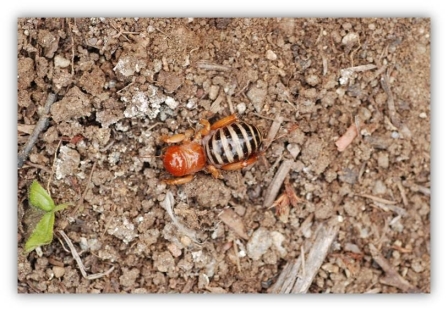Hidden in Plain Hidden Sight (Part 3)
Unless you take the time to stop and observe closely, you will miss thousands of mini soap operas taking place in the lives of every living creature. Meredith French, master gardener and long-time Mission Hills Garden Club supporter in every possible way, shared Francis Bacon’s words: “Even in the most beautiful landscape, in the trees, under the leaves the insects are eating each other. Violence is a part of life.”
French discussed why we need creatures we often disdain such as microbes, insects, other invertebrates and spiders. Our very existence depends on the adventures, successes and failures of creatures too small for the human eye to discern as well as larger fauna. Their struggles, discussed in the last two parts of this article, are not unlike our own.
“Everything in our fauna world lives to pursue food and at the same time lives to avoid being pursued,” says Meredith. “The ways are infinite and infinitely interesting.” French’s goal is to have us see what goes on and to observe these struggles for survival without judgment. Your enemy might be another creature’s dinner; the bugs that make you shudder may be an essential factor in the health of your garden. Taking this to a more grandiose level, earth is our garden; we need to keep her healthy so we may prosper. French quoted Jonas Salk who said, “If all insects on earth disappeared, within 50 years all life on earth would end.”
Since our planet’s health is essential to our well-being, French began describing what makes a garden a healthy garden. First and foremost, it depends on its microbe, insect, and invertebrate populations to decompose mulch and leaf litter necessary to build new soils. In addition, a healthy garden needs “climate appropriate” plants. Although both flora and fauna need water, most beginning gardeners overwater. Excessive water is a major cause of a garden’s failure to thrive. Lastly, French explained that hedgers, the clippers that manicure bushes to act as walls or fences, are a detriment to the garden.
“Hedged plants experience shortened life spans when their blossoms are sheared off. They experience reduced supplies of its needed carbon dioxide for respiration and provide less cover and access for bird species who use bushes for protection, shade and/or resident insect life,” says French.
Fauna, the necessary component of a healthy garden, consist of microbes, insects, other invertebrates, spiders, and other classes of creatures. The microbes are what French calls the “workhorses of the garden.” They include bacteria, fungi, algae, protozoa invisible to the naked eye. “Healthy soils are living soils,” according to French. She went on to say that a single teaspoon of healthy soil contains over a billion microbes and 13,000 different species. These workhorses “fix nitrogen as well as producing carbon, oxygen, hydrogen, and a host of other essential substances including trace minerals. Microbes convert organic matter into humus that is accessible to plants through their root systems.
Among the fauna living in healthy soil are invertebrates such as earthworms. French explained that in a single year on one acre one earthworm can move 10 tons of soil to the surface. Other fauna are potato bugs, also known as Jerusalem crickets. They may be the ugliest bug in existence. Being sensitive to light, they only come out from under the soil at night when they devour insects. By day, they remain underground aerating the soil and occasionally nibbling on roots and tubers.
The classes of Chilopoda and Diplopoda (centipedes and millipedes) are also necessary. These creatures’ bodies have many segments. As each new section grows, so does another set of legs so that each segment has its own set of legs. These creatures, with their tiny mouths, eat soft decaying matter and fallen fruit. “They even eat soil and refine it,” French says.
We learned about pill bugs and sow bugs as well. Perhaps they were stowaways, accompanying plants brought here by European settlers. They, too, eat decaying materials and damaged seedlings or live matter. They live long lives and grow slowly. The females are marsupials, and their babies molt several times.
Insects and spiders and others need sources of food and water, just as we do. These creatures also need hiding places. Here they can lay their eggs, raise their young, wait for prey or hide from predators. We must respect all these creatures their right to exist. Our survival depends on theirs.
For the October 22 meeting, Officer David Surwilo, San Diego Police Department Community Relations Officer Western Division and Tiger Palafox are scheduled to talk about measures you can take to protect your home from break-ins and what you can do to make taking items from your home more difficult. This will be followed up by outside plants that create good barriers. Meetings go from 6 to 8 p.m. at the church at 4070 Jackdaw. Guests pay $10 and may use that towards the annual dues if they join at the meeting’s end.
This is membership renewal month. You may pay at the door, $35.00 for a year’s membership. This entitles you to nine educational and interesting presentations, several coffees or cocktails in the garden, special field trips and an opportunity to make wonderful new friends.
Category: Local News








